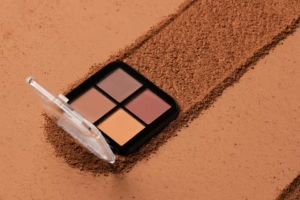Building Your Skincare Routine: Expert Tips from Dermatologists
In an age where self-care has become synonymous with health and wellness, a well-structured skincare routine is essential for achieving and maintaining radiant skin. Dermatologists, as experts in skin health, provide valuable insights into creating a regimen tailored to individual skin types and concerns. This article will serve as a guide to developing an effective skincare routine, underpinned by expert advice and the latest in dermatological research.
Understanding Your Skin Type
The first step in building a successful skincare routine is understanding your skin type. Dermatologists classify skin into four major categories: normal, oily, dry, and combination. Each skin type necessitates specific care and product types.
Normal Skin
Normal skin has a balanced level of moisture and oil. It typically presents with a smooth texture and minimal imperfections. For individuals with normal skin, a simple routine using a gentle cleanser, a lightweight moisturizer, and sunscreen is often sufficient.
Oily Skin
Oily skin is characterized by excess sebum production, leading to a shiny complexion and a higher propensity for acne. Those with oily skin should opt for non-comedogenic products, which are formulated not to clog pores. A gentle foaming cleanser, a water-based moisturizer, and salicylic acid-containing treatments can be beneficial.
Dry Skin
Dry skin lacks moisture and can feel tight or flaky. Dermatologists recommend using hydrating cleansers and rich moisturizers containing ceramides and hyaluronic acid to restore moisture. Individuals with dry skin should also consider incorporating facial oils into their routine for added hydration.
Combination Skin
Combination skin exhibits traits of both oily and dry skin, often having an oily T-zone (forehead, nose, and chin) while the cheeks may be dry or normal. A versatile skincare routine should include products that cater to both types, such as gentle exfoliators and lightweight moisturizers.
Core Components of a Skincare Routine
A well-rounded skincare routine generally consists of several essential steps. Dermatologists suggest the following core components: cleanser, toner, treatment, moisturizer, and sunscreen.
1. Cleanser
The foundation of any skincare routine is a quality cleanser. It is crucial to remove impurities such as dirt, makeup, and excess oil without stripping the skin’s natural barrier. A gentle, sulfate-free formula is ideal for all skin types. For those with specific concerns, such as acne or dryness, specialized cleansers may be more effective.
2. Toner
Toners can serve as an additional layer of cleansing, helping to remove any leftover impurities and restore pH balance. While traditional toners often contained alcohol, modern formulations tend to prioritize hydration. Dermatologists recommend toners with soothing ingredients like rosewater or chamomile, particularly for sensitive skin.
3. Treatment Products
Treatment products often contain active ingredients designed to target specific skin concerns. For acne-prone skin, look for products containing benzoyl peroxide, salicylic acid, or retinoids. For dark spots or signs of aging, vitamin C serums and retinols are recommended. It’s crucial to introduce these products gradually to minimize skin irritation.
4. Moisturizer
Moisturizers are vital for all skin types, helping to maintain the skin’s moisture barrier. However, the choice of moisturizer should correspond to your skin needs. Gel-based moisturizers can be effective for oily skin, while creams are often best for dry skin. Ingredients like glycerin and hyaluronic acid are beneficial for their hydrating properties.
5. Sunscreen
The final step in your skincare routine should be the application of sunscreen. Dermatologists emphasize the importance of daily sun protection to prevent skin damage, premature aging, and skin cancer. A broad-spectrum sunscreen with an SPF of at least 30 is recommended, and it should be applied generously and reapplied every two hours when outdoors.
Incorporating Exfoliation and Masks
Beyond the core components, exfoliation and masks can enhance your skincare routine. Exfoliation helps to remove dead skin cells and promotes cell turnover, revealing fresh skin underneath.
Exfoliation
Dermatologists suggest two primary types of exfoliators: physical and chemical. Physical exfoliators, such as scrubs, manually remove dead skin, while chemical exfoliators, like alpha hydroxy acids (AHAs) and beta hydroxy acids (BHAs), dissolve dead skin cells. For most people, exfoliating 1-2 times a week is sufficient. Over-exfoliating can lead to skin irritation and loss of moisture.
Masks
Face masks can provide a concentrated treatment for specific concerns. Hydrating masks are excellent for dry skin, while clay masks may help detoxify and absorb excess oil in oily skin. It’s essential to choose masks suited to your skin type and use them as needed rather than daily.
Seasonal Adjustments to Your Skincare Routine
Our skin changes with the seasons due to varying environmental factors such as humidity and temperature. Dermatologists recommend adapting your skincare routine accordingly:
- Winter: Cold, dry air can exacerbate dryness. Consider using thicker creams, hydrating masks, and a humidifier to combat moisture loss.
- Summer: High humidity levels may require lighter products. Opt for gel-based moisturizers and non-comedogenic sunscreens to prevent clogging pores.
Lifestyle Factors That Affect Skin Health
Skincare is not solely defined by the products used; various lifestyle factors can also play a significant role in skin health. Dermatologists highlight the importance of diet, hydration, sleep, and stress management:
Diet
A balanced diet rich in antioxidants, vitamins, and minerals can support skin health. Foods high in omega-3 fatty acids, such as salmon and walnuts, help combat inflammation. Incorporating fruits and vegetables like berries, spinach, and avocados provides essential nutrients that promote healthy skin.
Hydration
Drinking sufficient water is crucial for maintaining hydration levels in the skin. Aim for at least eight glasses of water daily, adjusting based on your activity level and environment.
Sleep
Quality sleep is vital for skin repair and regeneration. Insufficient sleep can lead to increased stress levels and skin problems such as breakouts and dullness. Aim for 7-9 hours of restful sleep per night.
Stress Management
Chronic stress can exacerbate skin conditions such as acne, eczema, and psoriasis. Incorporate stress-reduction techniques such as meditation, yoga, or deep-breathing exercises into your daily routine.
When to Consult a Dermatologist
While many skincare issues can be addressed with over-the-counter products, certain conditions require professional intervention. Signs that it may be time to consult a dermatologist include:
- Persistent acne that does not improve with typical treatments.
- Sudden changes in skin texture or color.
- Dry patches that do not respond to moisturizers.
- New growths or changes in existing moles or spots.
Conclusion
Building a skincare routine tailored to your individual needs can yield significant benefits in maintaining healthy, glowing skin. By understanding your skin type and incorporating essential products and practices, you can create a regimen that addresses your specific concerns. Remember, consistency is key, and seasonal adjustments, along with a focus on overall lifestyle factors, can further enhance your skin’s quality. Always consult a dermatologist for personalized advice, especially if problems arise or you’re unsure of your specific skin care needs.
References
For deeper insights into building a skincare routine or understanding the impact of various products and lifestyles on skin health, refer to the following [modern_footnote_source]:
- American Academy of Dermatology. (2022). “Skin Type and Skincare Basics.”
- Journal of Clinical and Aesthetic Dermatology. (2021). “The Role of Moisturizers in Skin Health.”
- Dermatological Research and Practice. (2022). “Effective Sunscreens: Ingredient Insights.”
- Journal of Cosmetic Dermatology. (2023). “Seasonal Adjustments in Skincare: A Dermatologist’s Perspective.”
- American Academy of Dermatology. (2023). “Diet and Skin Health: The Connection.”
By leveraging expert advice and scientific resources, you can build a skincare routine that promotes long-term skin health and vitality. Take the time to explore options, identify what works for you, and don’t hesitate to seek professional guidance as needed to achieve the best results.


























Add Comment